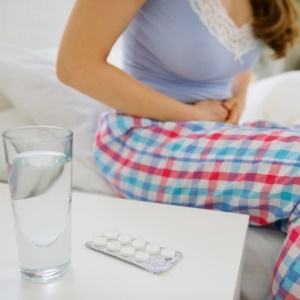
Diarrhoea is a problem if there are:
•Frequent loose stools (including nocturnal stools)
•Blood and mucus in the stools
•Associated vomiting
•Inability to rehydrate oneself adequately (this usually affects the elderly and very young).
•Symptoms such as high fever, severe abdominal pain, diarrhoea that doesn’t improve after 48 hours are serious. Seek medical attention.
In babies and young children, normal stools may be watery or contain mucus. Each baby has different bowel habits. Many breast-fed babies have a bowel movement with each feeding and sometimes between feedings.
Unless there is a change in a breast-fed baby's normal habits, loose, frequent stools are not considered to be diarrhoea. Formula-fed babies with lactose intolerance may have loose, greenish stools, or hard stools.
For babies and children, mild to moderate diarrhoea can be described as fewer than six large, loose stools in 12 hours.
Diarrhoea can occur with other infections such as measles. As diarrhoea worsens, babies become more irritable and restless. Their skin over the abdomen loses its firm consistency and may become paper thin. Other late signs of dehydration include weakness, floppiness and seizures.
Diarrhoea is severe if a child under four years old has large stools every one to two hours. Severe diarrhoea causes the body to lose large amounts of fluid quickly, increasing dehydration risk.
A child whose stools are always loose and very dark or foul-smelling should be medically examined.
The mother should take her child to a doctor or clinic if the child starts to pass many watery stools, has repeated vomiting, becomes very thirsty, is eating or drinking poorly, develops a fever, has blood in the stool, or does not get better within a period of three days.
Diarrhoea may also be accompanied by other symptoms such as abdominal cramps, nausea and weakness:
Cramping
• Cramping (spasmodic) abdominal pain is common with diarrhoea. When it is relieved by passing gas or stool, such pain is rarely cause for concern. After passing several loose stools, the abdominal muscles may feel sore, but this type of pain should let up after diarrhoea stops. Continuous abdominal pain not relieved by passing gas or stool, or that localises to a specific part of the abdomen may indicate a more serious problem.
• A young child with severe abdominal pain may clutch his stomach, scream, or pull his legs up to his chest. Severe abdominal pain that starts suddenly, continues, and is not relieved by passing stools may indicate a serious problem such as appendicitis or bowel obstruction.
• Many babies have cramping abdominal pain that makes them irritable (usually in the evening) for two to three months. This condition, colic, is often associated with diarrhoea.
Types of diarrhoea
•Diarrhoea with nausea, vomiting, fever and aches, which persists for one to three days, may indicate viral gastroenteritis (stomach flu).
•Diarrhoea with fever chills and sometimes blood or mucus in the stool may indicate bacterial infection. Vomiting is less common.
•Symptoms of food or lactose intolerance commonly include diarrhoea, bloating, gas and cramps a few hours after eating the offending foods. There will be no other signs of illness.
•Diarrhoea with cramping during times of stress may be caused by emotional distress.
•In children, viral and bacterial infections can cause diarrhoea, vomiting and high fever. A fever lasting up to four days is usually not a concern, especially if it comes and goes and gradually decreases.
Course
Usually diarrhoea lasts only a few days and isn't serious. However, severe or persistent diarrhoea, especially in babies, requires medical attention.
Read more:
Revised and reviewed by Dr Saville Furman, MBChB MFGP (SA). Family Physician, Part time lecturer in family medicine and primary care at UCT, Red Cross Children’s Hospital and Groote Schuur hospital, Cape Town. February 2015.
Previously reviewed by Dr Naayil Rajabally MBBCh (Wits), FCP (SA), Cert Gastroenterology (Phys) Division of Gastroenterology, Department of Medicine, Groote Schuur Hospital. Updated, October 2011




 Publications
Publications
 Partners
Partners















